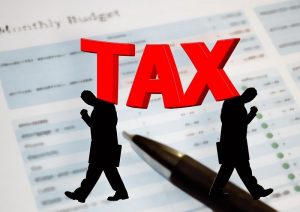NYC co-op apartments qualify for the Section 121 home sale exclusion. This allows homeowners to exclude up to $500,000 from the sale of their primary residence if they meet specific ownership and use requirements.
ownership and use requirements.
Single taxpayers can exclude up to $250,000 of capital gains from their income, while married couples filing jointly can exclude up to $500,000.
To qualify for the Section 121 exclusion, you must have owned and used the co-op as your primary residence for at least two of the five years before the sale.
This is easy, as co-ops are primary residences. However, you can claim a Section 121 exclusion only once every two years.
What expenses can you deduct when calculating co-op capital gains tax?
You can deduct Closing costs, capital improvements, and specific assessments when calculating the taxable gain from the sale of an NYC co-op.
Buyer Closing Costs
You may deduct qualifying closing costs incurred when you initially purchased your co-op. Eligible deductions include the Mansion Tax, Mortgage Recording Tax, title insurance, attorney fees, and other purchase-related fees.
Capital Improvements
You can increase your basis by significant renovations or improvements to the property, such as gut-renovating a bathroom.
Building Special Assessments
If the special assessments levied by the co-op during ownership are considered capital improvements, you may be able to deduct them.
‘Capital assessments’ fund long-term repairs, renovations, or improvements to the property.
These assessments typically finance major projects that enhance the property’s overall value or address significant structural issues.
Capital assessments include roof replacements, elevator upgrades, façade repairs, and energy-efficient system installations. They aim to maintain and improve the property’s physical condition and amenities for all residents or owners.
Conversely, operating assessments are fees levied to finance a building or community’s regular operational expenses. These costs include routine maintenance, utilities, insurance, management fees, security, landscaping, and other daily operational expenditures.
Operating assessments are not generally tax deductible for capital gains tax purposes.
Seller Closing Costs
You may also deduct seller closing costs when calculating capital gains taxes.
You can deduct certain closing costs for sellers, such as NYC and NYS transfer taxes, broker commissions, staging and preparation fees, and co-op flip tax. Including these expenses in the basis calculation reduces the amount of taxable capital gains.
A qualifying deduction reduces your capital gains tax liability by raising the property’s cost basis.
How much are Federal capital gains taxes when selling a NYC co-op?
The Federal capital gains tax rate on the sale of a NYC co-op ranges from 0% to 37%.
The same capital gains tax rates apply to the sale of a NYC co-op as with any other real estate. In the unlikely event that you owned an NYC co-op for one year or less before selling, any gains from the sale would be considered short-term capital gains and taxed at your ordinary income tax rates, ranging from 10% to 37%.
If you owned the NYC co-op for more than one year before selling, any gains from the sale would be considered long-term capital gains.
Current long-term gains tax rates range from 0% to 20% as follows:
- 0% if your taxable income is in the 10% or 12% federal income tax brackets.
- 15% if your taxable income is in the 22%, 24%, 32%, or 35% tax brackets.
- 20% if your taxable income is in the 37% tax bracket.
The Net Investment Income Tax (NIIT) is an extra 3.8% tax applied to capital gains for high-income earners.
The NIIT income thresholds are $200,000 for single filers, $125,000 for married individuals filing separately, and $250,000 for married couples filing jointly.
How much is NY State capital gains tax when selling a NYC co-op?
NYS capital gains tax rates are equivalent to regular income tax rates and depend on your taxable income. If you’re a resident of NYC, you’re subject to NYS and NYC income tax on capital gains from the sale of your co-op.
In New York State, marginal tax rates vary between 4% and 10.9%.
Additionally, New York City features four income tax brackets, ranging from 3.078% to 3.876%.
How is the cost basis defined for a co-op apartment?
The cost basis of an NYC co-op includes the apartment’s original purchase price, the combined closing costs for both the buyer and seller and the expenses for capital improvements made during ownership.
For instance, if you bought a co-op in NYC for $500,000 and invested $40,000 in significant renovations while incurring 10% in total closing costs, amounting to $50,000, your cost basis would be $590,000.
If you sell the co-op for $600,000, you will incur a taxable gain of $10,000.
However, if you qualify for the Section 121 home sale exclusion, you won’t have any capital gains tax liability. The exclusion amount ($250k or $500k) surpasses the $10,000 gain.


